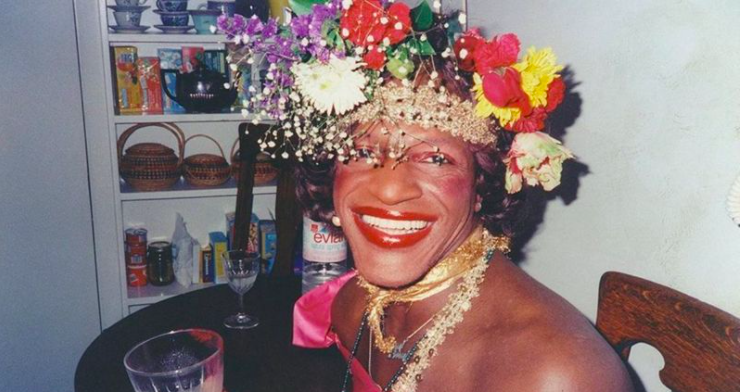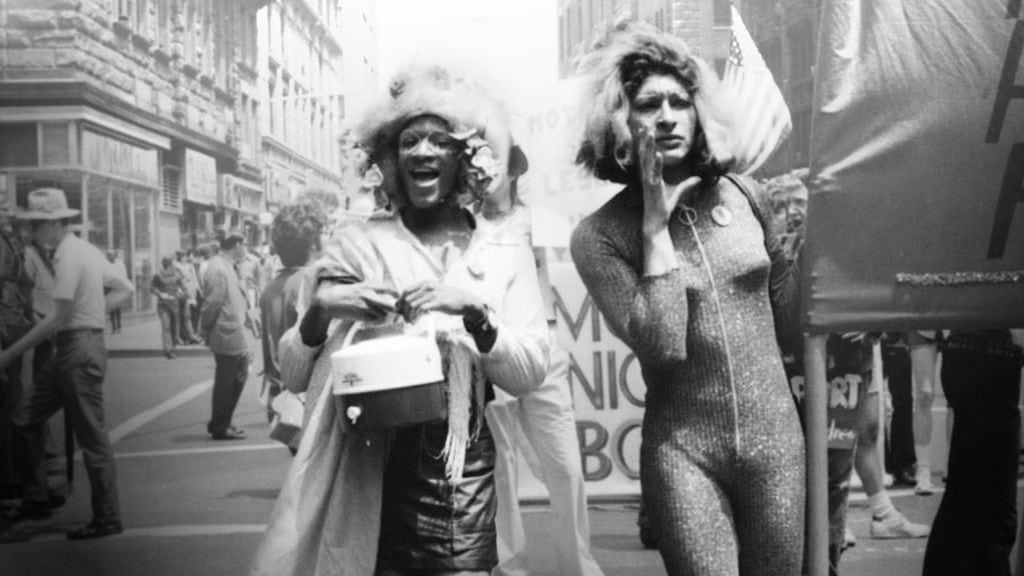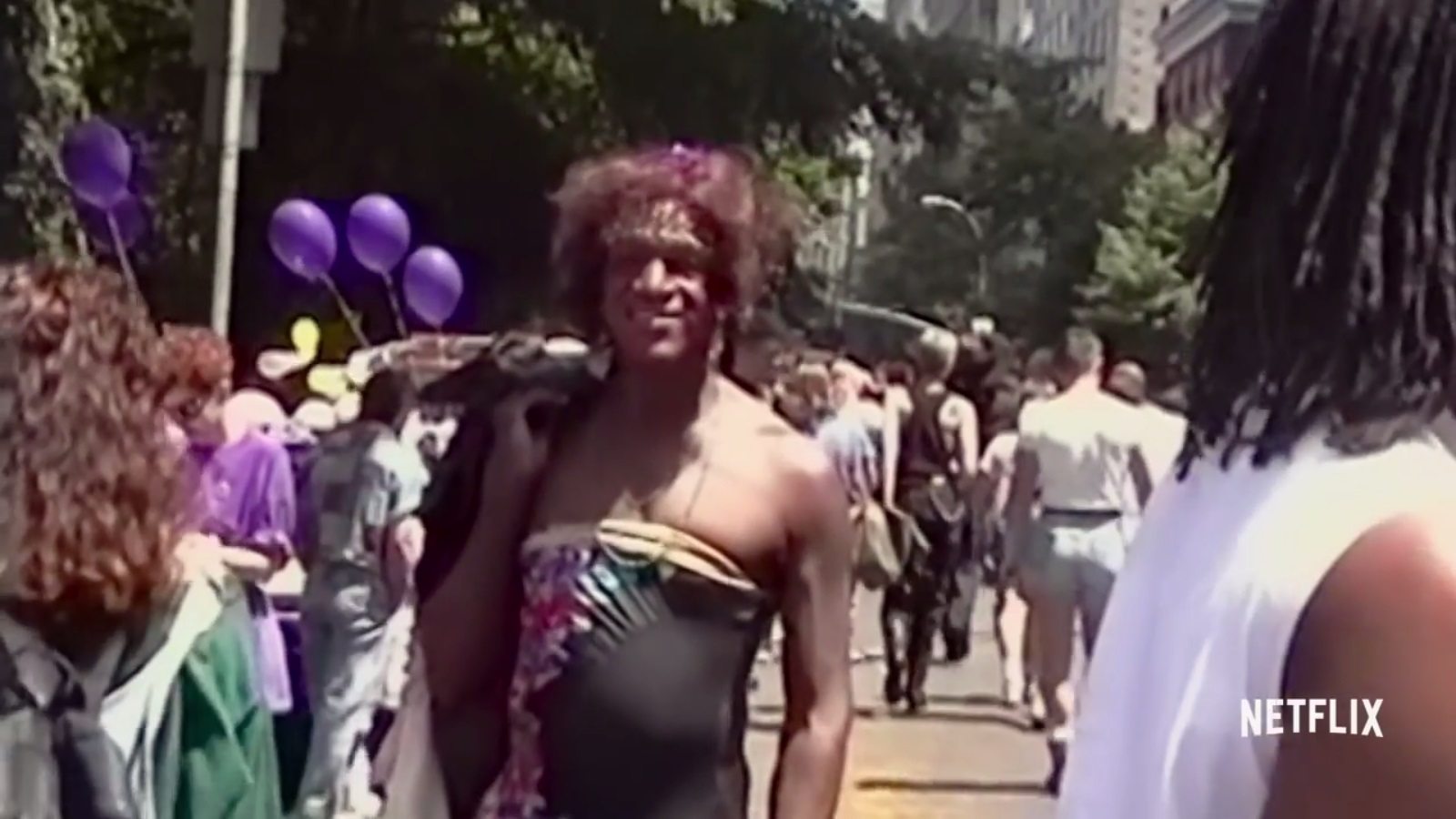13 incredible facts about Stonewall legend and LGBT+ rights trailblazer Marsha P Johnson you might not know

Marsha P Johnson. (Netflix)
Marsha P Johnson, the trailblazing LGBT+ activist, played a vital part in the Stonewall Uprising of 1969 and dedicated her life to fighting for the rights of queer people.
Were Johnson alive in 2020, she would be 75 years old and without doubt still on the frontlines of the battle for civil rights.
An institute in her name continues her fight for the rights of Black trans people almost three decades after her tragic death in 1992, aged 46, and more than 50 years after she took part in Stonewall, she is rightfully remembered around the world as one of the pioneers of the LGBT+ rights movement.
As calls for Black trans lives to be recognised and uplifted are echoed around the world, Johnson’s work and incredible life story are perhaps more relevant now than ever. Here, we round up 13 facts about Marsha P Johnson that you probably didn’t know.
1. Marsha P Johnson started wearing dresses at the age of five.
Johnson started expressing her gender by wearing dresses when she was just five years old – but she quickly stopped after boys in her neighbourhood started harassing her.
It would be years before she felt comfortable enough to express her gender identity openly again.
2. She grew up in a staunchly religious household where being LGBT+ was frowned upon.
Life was very different for queer people in the United States when Johnson was born in 1945. Like many people of her generation, she grew up in a strictly-religious home where being LGBT+ was not only frowned upon, but was strictly forbidden.
Johnson’s mother once told her that being gay was like being “lower than a dog”.
3. Johnson suppressed her identity until she was old enough to leave New Jersey behind.
Marsha P Johnson coped with being queer in a non-affirming home in the only way possible: she suppressed her identity completely.
When she was 17 years old, she packed her bags and moved to New York City with just $15 to her name. It was there that she met other LGBT+ people and felt comfortable enough to come out while waiting on tables in Greenwich Village.
4. Marsha P Johnson’s name was inspired by a restaurant.
Marsha P Johnson initially identified herself as “Black Marsha”, but later came up with her full name from the restaurant Howard Johnson’s on 42nd Street. The “P” in her name stood for “pay it no mind” – her response when people asked her about her gender.
5. She became well-known in New York City for her drag performances.
Johnson became involved with the drag performance group Hot Peaches in 1972, and continued performing with the theatre company until the early 1990s.
One of her last performances with the group came in 1990, when she appeared in The Heat while wearing an ACT UP t-shirt.

Marsha P Johnson (left) and Sylvia Rivera (right). (Netflix)
6. Marsha P Johnson initially had her role in the Stonewall Riots erased.
In Stonewall: The Riots That Sparked the Gay Revolution, David Carter concluded that Johnson may have been excluded from accounts of the Stonewall Uprising due to fears that her identity “could have been used effectively by the movement’s opponents”.
Johnson herself said she arrived at the Stonewall Inn shortly after the riots kicked off, at around 2am. Some accounts suggest that, on the second night of rioting, Johnson climbed a lamppost and dropped a bag with a brick in it on a police car, shattering the windshield.
7. She was banned from a gay Pride parade because of discriminatory attitudes among queer people.
Johnson and her friend and fellow activist Sylvia Rivera were banned from marching in the 1973 gay Pride parade by gay men and lesbians, who insisted that they didn’t want “drag queens” at the event.
They claimed that Johnson and Rivera were “giving them a bad name”, leading to the pair being pushed out of the movement they had helped to kickstart.
8. Johnson dedicated much of her time to helping homeless gay and trans youth.
Johnson and Rivera set up the STAR House in 1972, a home where homeless gay and trans youths could seek refuge. They paid the rent on the house using their own money.
While the house was in operation, Johnson provided young people with clothes, food, emotional support and a sense of family.
9. The pioneering activist claimed to have been arrested more than 100 times throughout her life.
Marsha P Johnson claimed to have been arrested more than 100 times throughout her life – with the first of many taking place in 1970.
In the early 1970s, she was arrested for hustling – and responded by hitting police officers with a handbag with two bricks inside it. When the judge asked her why she had been hustling, she claimed to be raising funds for a tombstone for her husband.
When the judge asked what had happened to her “alleged husband”, she replied: “Pig shot him.”

Marsha P Johnson (Netflix)
10. She once modelled for acclaimed artist Andy Warhol.
Andy Warhol is known as one of the leading figures in the pop-art movement, and during his incredible career, he created an early portrait of Marsha P Johnson.
Warhol created the portrait of Johnson for his Ladies and Gentlemen series, which focused on trans women and drag queens.
11. Marsha P Johnson’s death has never been solved.
Marsha P Johnson went missing in the summer of 1992, shaking the New York queer community to its core.
Sadly, its worst fears came true on July 6, the her body was discovered in the Hudson River.
Her death was ruled a suicide, but friends and supporters have maintained that this was not the case. It was been widely suggested she was the victim of a hate-fuelled murder,
Two decades on, in 2012, a campaign to have her case reopened was successful, with the NYPD reclassifying her cause of death from suicide to undetermined.
12. Residents in her hometown recently campaigned for a statue of Christoper Columbus to be replaced with one of Marsha P Johnson.
While Johnson felt the need to get out of Elizabeth, New Jersey, in order to live her life fully and freely, she is remembered as a beacon of hope in her hometown today.
Recently, more than 3,500 residents signed a petition calling for the statue of Christopher Columbus in the town to be torn down and replaced with one of Johnson.
13. Johnson’s life has been commemorated in several New York City spots – but it took years for her to gain the recognition she deserved.
Sadly, Marsha P Johnson never received the recognition she deserved as a champion of LGBT+ rights during her lifetime.
She has been paid increasing attention in recent years, and several memorials have helped to commemorate her life.
In May of last year, it was announced that Johnson and Sylvia Rivera would have monuments dedicated to their memories in Greenwich Village.
Earlier this year, New York governor Andrew Cuomo announced that the East River Park in Brooklyn would be renamed in her honour – thus proving

